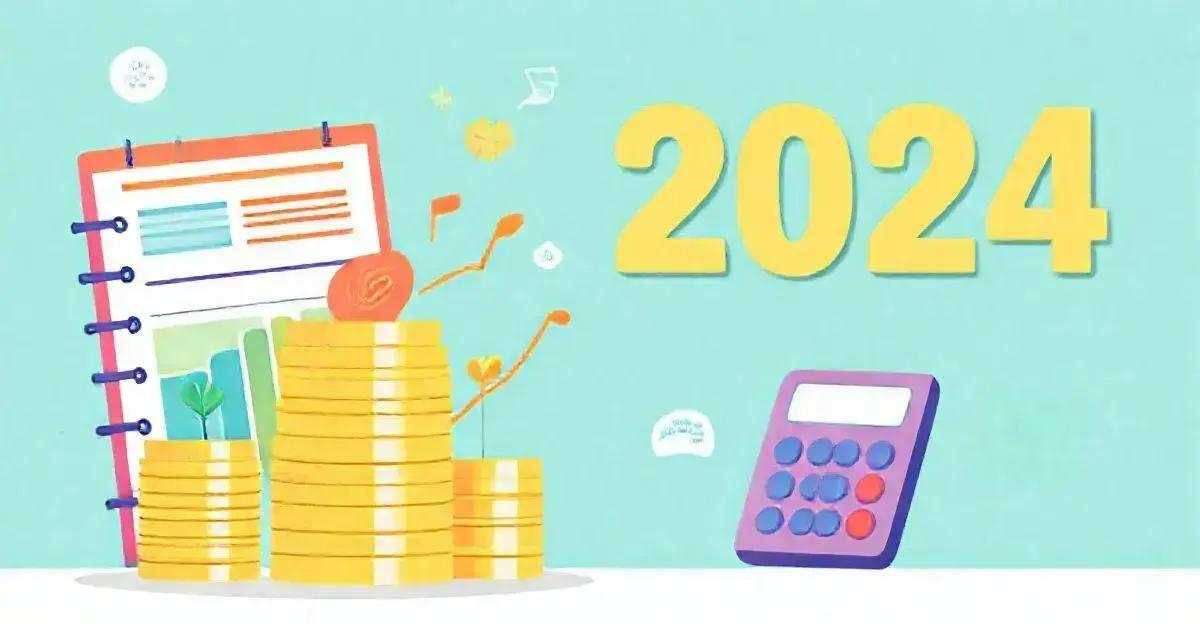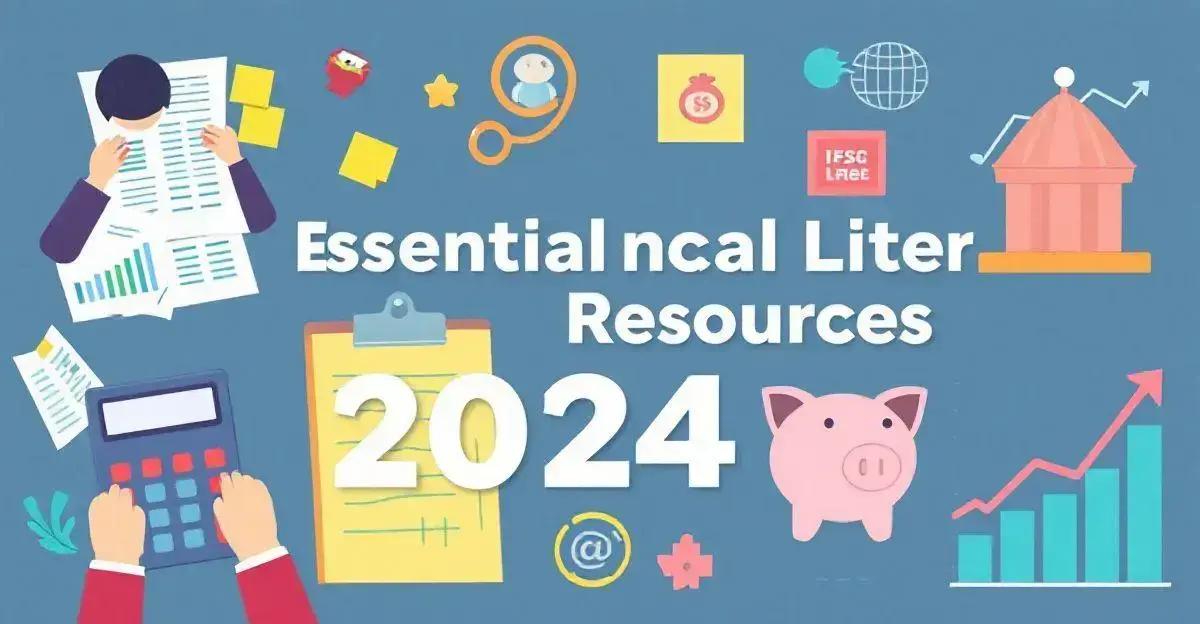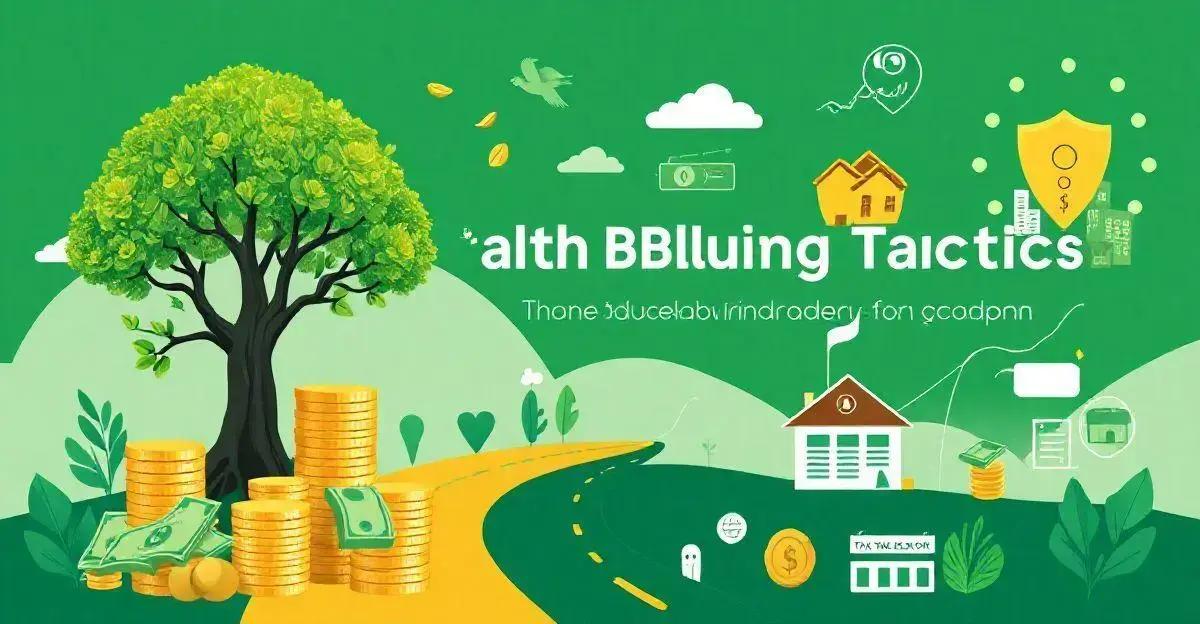Financial literacy is the key to unlocking a brighter financial future. With the ever-changing economic landscape, it’s more crucial than ever to develop good financial habits.
Whether you’re a young adult just starting your career or nearing retirement, understanding the basics of personal finance can make all the difference.
In this post, we’ll explore the importance of financial literacy, provide practical tips and strategies for achieving financial freedom, and highlight common mistakes to avoid.
Understanding the Importance of Financial Literacy
Financial literacy is the foundation upon which a stable financial future is built. It’s the ability to understand and manage one’s financial affairs effectively, making informed decisions about how to earn, save, and invest money.
Without it, individuals may struggle to make ends meet, accumulate debt, and achieve their financial goals. In today’s complex financial landscape, financial literacy is more crucial than ever.
It’s essential for individuals to develop good financial habits, such as creating a budget, avoiding debt, and investing for the future, in order to achieve financial stability and security.
By prioritizing financial literacy, individuals can make informed decisions about their financial lives, avoiding common pitfalls and achieving long-term financial success.
Setting Financial Goals and Creating a Budget

Setting financial goals and creating a budget are essential steps towards achieving financial stability and security.
A budget serves as a roadmap, outlining how income is allocated towards expenses, savings, and debt repayment.
Without a clear plan, it’s easy to overspend, accumulate debt, and fall short of financial goals.
A well-crafted budget, on the other hand, allows individuals to prioritize needs over wants, make informed financial decisions, and adjust spending habits as needed.
By setting SMART financial goals and creating a budget, individuals can take control of their financial lives, make progress towards their goals, and enjoy peace of mind.
Managing Debt and Credit Score
Managing debt and maintaining a good credit score are crucial components of financial literacy.
Debt can be overwhelming, but understanding how to prioritize payments, negotiate with creditors, and consolidate debt can make a significant difference.
A good credit score, on the other hand, can unlock better loan terms, lower interest rates, and increased financial flexibility.
By taking control of debt and credit, individuals can reduce financial stress, improve their creditworthiness, and make progress towards their long-term financial goals.
It’s essential to stay informed about credit reporting, dispute errors, and maintain a healthy credit utilization ratio to achieve financial stability.
Investing for the Future

Investing for the future requires a solid understanding of financial markets, risk tolerance, and long-term goals.
By developing an investment strategy, individuals can grow their wealth, achieve financial independence, and secure their financial future.
It’s essential to start early, diversify investments, and regularly review and adjust the portfolio to ensure alignment with changing financial goals and market conditions.
With the right investment approach, individuals can overcome financial obstacles, achieve financial freedom, and enjoy peace of mind.
Building an Emergency Fund
Building an emergency fund is a crucial component of financial preparedness. By setting aside a portion of income in a dedicated savings account, individuals can avoid debt, reduce financial stress, and ensure access to essential funds in times of financial uncertainty.
It’s essential to prioritize emergency savings, considering factors such as job security, income stability, and unexpected expenses.
By building a robust emergency fund, individuals can weather financial storms, achieve financial stability, and enjoy peace of mind.
Common Financial Literacy Mistakes to Avoid

Common financial literacy mistakes to avoid include neglecting to create a budget, failing to prioritize emergency savings, and neglecting to monitor credit reports.
Additionally, individuals should be cautious of high-interest debt, avoid impulse purchases, and avoid relying solely on credit cards for financial transactions.
By recognizing and avoiding these common pitfalls, individuals can take control of their financial lives, make informed decisions, and achieve long-term financial stability.
FAQs – Common Questions About Financial Literacy
What is financial literacy and why is it important?
Financial literacy is the ability to understand and manage one’s financial affairs effectively. It’s essential for making informed financial decisions, achieving financial stability, and achieving long-term financial goals.
How can I improve my financial literacy?
Improving financial literacy requires taking control of your finances, setting financial goals, and creating a budget. It also involves educating yourself on personal finance, investing, and managing debt.
What are some common financial literacy mistakes to avoid?
Common financial literacy mistakes include neglecting to create a budget, failing to prioritize emergency savings, and neglecting to monitor credit reports. Additionally, individuals should be cautious of high-interest debt, avoid impulse purchases, and avoid relying solely on credit cards for financial transactions.
How can I build an emergency fund?
Building an emergency fund requires setting aside a portion of your income in a dedicated savings account. It’s essential to prioritize emergency savings, considering factors such as job security, income stability, and unexpected expenses.
What are some ways to invest for the future?
Investing for the future requires a solid understanding of financial markets, risk tolerance, and long-term goals. It’s essential to start early, diversify investments, and regularly review and adjust the portfolio to ensure alignment with changing financial goals and market conditions.
How can I manage debt and credit score?
Managing debt and credit score requires prioritizing debt repayment, negotiating with creditors, and maintaining a good credit utilization ratio. It’s essential to stay informed about credit reporting, dispute errors, and maintain a healthy credit score.



